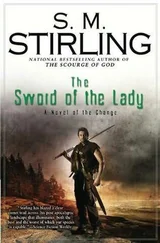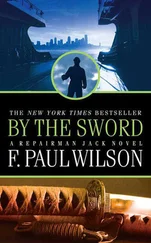Paul Christopher - The Sword of the Templars
Здесь есть возможность читать онлайн «Paul Christopher - The Sword of the Templars» весь текст электронной книги совершенно бесплатно (целиком полную версию без сокращений). В некоторых случаях можно слушать аудио, скачать через торрент в формате fb2 и присутствует краткое содержание. Жанр: Триллер, на английском языке. Описание произведения, (предисловие) а так же отзывы посетителей доступны на портале библиотеки ЛибКат.
- Название:The Sword of the Templars
- Автор:
- Жанр:
- Год:неизвестен
- ISBN:нет данных
- Рейтинг книги:3 / 5. Голосов: 1
-
Избранное:Добавить в избранное
- Отзывы:
-
Ваша оценка:
- 60
- 1
- 2
- 3
- 4
- 5
The Sword of the Templars: краткое содержание, описание и аннотация
Предлагаем к чтению аннотацию, описание, краткое содержание или предисловие (зависит от того, что написал сам автор книги «The Sword of the Templars»). Если вы не нашли необходимую информацию о книге — напишите в комментариях, мы постараемся отыскать её.
The Sword of the Templars — читать онлайн бесплатно полную книгу (весь текст) целиком
Ниже представлен текст книги, разбитый по страницам. Система сохранения места последней прочитанной страницы, позволяет с удобством читать онлайн бесплатно книгу «The Sword of the Templars», без необходимости каждый раз заново искать на чём Вы остановились. Поставьте закладку, и сможете в любой момент перейти на страницу, на которой закончили чтение.
Интервал:
Закладка:
There were three doors on the near side of the farmhouse to choose from. Holliday knocked on the most substantial, an oak-planked slab with iron strap hinges, the wood stained almost black with the passage of time.
A moment later they heard shuffling footsteps and then the drawing of a heavy bolt. The door opened. The man who answered the knock was tall and a little stooped, with thinning hair that looked as though it might have once been blond but that was now a peculiar color of nicotine gray. He appeared to be in his eighties, and once upon a time he would have been called handsome. He wore bright red half-framed reading glasses on a long aquiline nose, a tatty green cardigan that was missing a button or two over a striped white shirt and wrinkled cotton trousers that were splattered with paint. There were expensive-looking slippers on his feet, and a tumbler with an inch of amber liquid in his left hand.
“Yes?” he said.
“Sir Derek Carr-Harris?”
“Mr. Carr-Harris will do,” he answered, almost sheepishly. “The ‘Sir’ makes me feel too much like a country squire out of a P. G. Wodehouse novel. Sir Watkyn Bassett in The Code of the Woosters or something. And you are?”
“John Holliday and Peggy Blackstock.”
The man standing in the doorway beamed.
“From America. Henry Granger’s nephew and his granddaughter, yes?”
“That’s right,” nodded Holliday.
“How wonderful!” Carr-Harris said. “Do come in!” He stood aside and waved them in with his whiskey glass. They stepped into a short hallway lined with bookshelves, and Carr-Harris closed the door, bolting it behind him. He led them into a large, high-ceilinged living room; the rafters were made of hand-hewn beams two feet thick.
There were framed paintings on the walls, all oils and all from the British Romantic School of the early nineteenth century: bucolic country scenes with buxom milkmaids and Turneresque sailboats setting out on stormy seas. Where there weren’t paintings there were roughly made bookcases. Between two of the bookcases there was a tall, Victorian walnut gun case with a glass door. There was a vaguely musty smell that came either from the books or the moldy thatch in the roof. There wasn’t the faintest sign of a woman’s touch anywhere in the room.
Peggy wrinkled her nose.
The furniture was old, worn, and unpretentious, club chairs and a couch or two drawn up in a vague circle around an oval hearth rug that stood in front of an enormous stone fireplace. There was a large utilitarian desk off to one side with an old IBM Selectric typewriter on it surrounded by piles of books and papers. Carr-Harris folded himself into one of the club chairs and waved Peggy and Holliday to a couch. They sat.
“So how is dear old Henry?” Carr-Harris asked. “Well, I hope, although one mustn’t expect too much at our age of course.”
“He’s passed away,” said Holliday.
“Oh, dear,” murmured Carr-Harris. He took a long swallow of his drink and sighed. “He was very old,” he said philosophically. “Like me.” He took another sip of whiskey and looked lost in thought for a few moments. “I saw him quite recently,” he said finally. “The Old Members Lunch at the College, you know.”
“In March,” said Holliday.
“That’s right,” said the elderly man.
“That’s why we’re here,” said Holliday.
“Ah,” nodded the old man. “You found the sword then. Well done, young fellow. Henry said you would, you know!”
It was a long time since Holliday had been referred to as “young fellow.” He smiled.
“You knew about the sword?” Peggy asked, surprised.
“Of course I knew about the sword, young lady. I’ve known about it since Postmaster. Nineteen forty-one or thereabouts.”
“Postmaster,” said Holliday, making the connection. “The photograph of you and Henry on the wall of his office.”
“That’s right,” said Carr-Harris. “It was no great secret. Henry and I were working with that young Fleming lad in Naval Intelligence, the one who wrote all those dreadful penny dreadfuls.”
“James Bond,” supplied Peggy.
“Umm,” nodded Carr-Harris, polishing off his drink. He set the glass down on a small table beside his chair, then fumbled around in the pocket of his sweater and brought out a package of unfiltered cigarettes and a lighter. He lit one and took a deep drag, easing himself back into his chair.
It was an odd sight; Holliday was used to seeing smokers in craven little huddles in their narrow ghettos outside of office buildings, not in mixed company, and he certainly wasn’t used to seeing smokers in their eighties. Carr-Harris was clearly a man from a different age and time.
“What was Postmaster?” Peggy asked.
“Like something from a Hornblower novel,” said Carr-Harris, chortling happily. “A cutting-out expedition.”
Peggy frowned. “Cutting out what?”
“A ship,” answered the old man. “An Italian liner called the Duchess of Aosta. We suspected her of being used as a mother ship for German U-boats. She was based on the island of Fernando Pуo off the coast of Guinea in West Africa. I believe they call the island Bioko or some such now.”
Holliday wondered what any of this had to do with the sword, but he kept silent and let the old man rummage in his memories.
“The name Postmaster was something of a joke,” said Carr-Harris, puffing on his cigarette. “It’s what they call an undergraduate student at Merton College, and all of us were from Balliol. Silly. They were the ones who’d organized the whole thing, including Maid of Honour.”
“Maid of Honour?” Peggy asked.
“A Brixham trawler,” explained Carr-Harris. “Part of the Small Scale Raiding Force. Special Operations Executive, and all that lot. The sort of thing that Fleming and his sort thrived on, at least in the planning if not the execution.”
“Leonard Guise and Donald Mitchie,” said Holliday, “the two other men with you and Uncle Henry in that photograph.”
“That’s right.” Carr-Harris nodded. “At any rate the Duchess of Aosta was in Fernando Pуo. Malabo, I believe the port is called. Filthy place. A swamp really. Anyway, the ship was there as well as a pair of German trawlers that were supposedly interned for the duration.
“The main job was to take Maid of Honour into the port, put a line on the Duchess, and tow her off to Lagos down the coast. Henry and I went into the town to get the captain and the crew drunk while the rest of the crew hauled the ship away. What we were after were the codes of course, not the ship itself; that was a bonus.”
“Codes?” Holliday asked.
“Kurzsignalheft,” said Carr-Harris, “the German code books. We already had the Enigma by then, but the German Kriegsmarine had any number of codebooks and they kept on switching them. Cheeky lot. The Kurzsignalheft we managed to filch off the Duchess of Aosta were the first ones they had at Bletchley Park.”
“The British cryptanalysis headquarters,” said Holliday, nodding.
“That’s right,” said Carr-Harris. “They both worked there eventually, Guise and Mitchie. Ended up doing something frighteningly scientific with computers, I think.”
“I really don’t see what this has to do with Grandpa Henry’s sword,” commented Peggy, clearly a little frustrated by the old professor’s roundabout tale.
“Ah,” said Carr-Harris. “The letter.”
“The letter?”
“The Duchess of Aosta’s regular route was from Genoa to Argentina and back. It was in the mid-Atlantic on its return journey when war was declared and the shipping line ordered its vessels into neutral ports. In the case of the liner, that was Fernando Pуo. One of the passengers on board was a man named Edmund Kiss, purportedly an archaeologist and a crony of Hitler’s. Kiss had been in Buenos Aires on behalf of the Nazis discussing some silliness about an Aryan race in Antarctica. We found the letter in one of the staterooms on the Boat Deck; Herr Kiss must have overlooked it when he disembarked.
Читать дальшеИнтервал:
Закладка:
Похожие книги на «The Sword of the Templars»
Представляем Вашему вниманию похожие книги на «The Sword of the Templars» списком для выбора. Мы отобрали схожую по названию и смыслу литературу в надежде предоставить читателям больше вариантов отыскать новые, интересные, ещё непрочитанные произведения.
Обсуждение, отзывы о книге «The Sword of the Templars» и просто собственные мнения читателей. Оставьте ваши комментарии, напишите, что Вы думаете о произведении, его смысле или главных героях. Укажите что конкретно понравилось, а что нет, и почему Вы так считаете.











